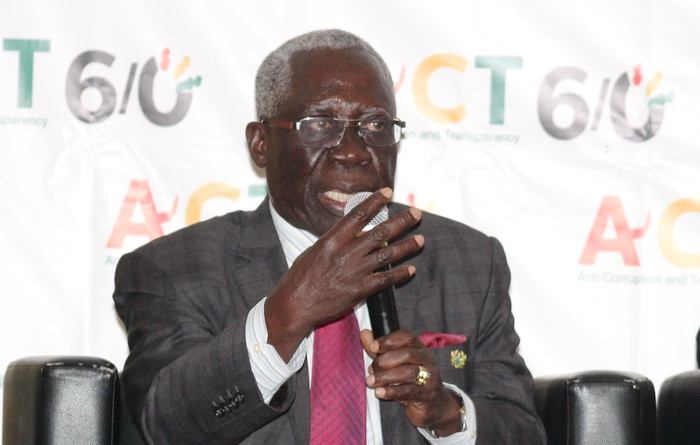
Government moves to seal export loopholes in petroleum sector
Theophilus Yartey
Business News
The Ministries of Energy and Finance are collaborating with the National Petroleum Authority (NPA) to implement stringent measures to reduce revenue leakages from the illicit dumping of Marine Gas Oil (MGO) Foreign in the country.
The stringent measures include the application of domestic taxes on MGO Foreign sold to foreign vessels and a collaboration with sub-regional neighbours to help account for products declared as exports to those countries.
The Chief Executive Officer of the NPA, Mr Alhassan Tampuli, indicated at the national petroleum downstream colloquium that some unscrupulous petroleum service providers had been cheating the system with the dumping of export-declared products and MGO Foreign declared sold to foreign vessels for economic gain and tax avoidance.
That, he said, had resulted in the need to introduce the measures to remove the economic incentive to cheat the system, explaining that these were already seen to be yielding some results.
“MGO leakages are estimated to have cost the nation GH¢18 million in lost tax revenue in 2017, while export dumping cost over GH¢850 million.
“The Ministries of Energy and Finance, in collaboration with the NPA, have put in place stringent measures which have drastically reduced these leakages. MGO Foreign, for instance, has reduced from 20 million litres a month to 290,000 litres a month based on the authority’s preliminary estimates,” he said at the forum which was on the theme: “Ghana’s petroleum downstream, then, now and the future.”
Plugging supply loopholes
Mr Tampuli said in order to consolidate gains made by the industry and make it more efficient, the authority intended to intensify activities towards plugging the supply leakages.
“Our activities will be geared towards assisting the Ghana Revenue Authority (GRA) to achieve the Special Petroleum Tax (SPT) revenue target of GH¢1.8 billion and the Ministry of Finance achieve the Energy Sector Levies Act (ESLA) revenue target of GH¢ 3.7 billion as provided for in the 2018 budget, he stated”.
The NPA, he noted, recognised the vibrant and dynamic nature of the downstream industry and was, therefore, committed to formulating and implementing innovative strategies and policies that would ensure that the industry remained efficient and profitable and at the same time ensuring that the good people of Ghana got the best value for money.
“It is with this commitment that we have decided to create this colloquium series to initiate discussions between industry participants, policy makers and the general public to assess the Petroleum downstream industry,” he stated.
Growth opportunities
The Minister of Energy, Mr Boakye Agyarko, said players in the downstream petroleum sector should be prepared to take advantage of opportunities by harnessing their expertise from across different disciplines in order not to only build and share ideas, but also have resilient systems that cater for unaccepted shocks that may occur.
“To be resilient, there is the need for us to ensure the continuous security of supply and affordability of petroleum products that meet the environmental and consumer demands of the market. This places greater responsibility on sector players to do more in order to respond to the changes,’ he said.
The government, he indicated, was focused on encouraging market-led innovations, while also removing barriers that undermined opportunities for those in the sector.
He explained, “I am sure as an industry, you are also positioning yourself to make the most of the emerging opportunities. I am certain that an efficiently led sector creates a positive environment that enables business operators to thrive, and we should be seen working towards that.”
The Vice-President, Dr Mahamudu Bawumia, in a speech read on his behalf by the Senior Minister, Mr Yaw Osafo-Maafo, stated that the petroleum downstream sector had witnessed significant investment and expansion of petroleum products storage and outlet facilities, largely championed by the private sector which was mostly dominated by a growing number of indigenous Ghanaian companies due to the deregulation of the petroleum downstream industry.
That, he said, had translated into a significant number of new entrants licensed to operate as Petroleum Service Providers (PSPs) in the industry.
The sector, he added, had over the years contributed significantly to the growth and development of the economy. From 2013 to 2016, the sector is estimated to have contributed over GH¢46 billion to the country’s Gross Domestic Product (GDP), representing an average contribution of 10 per cent per annum.